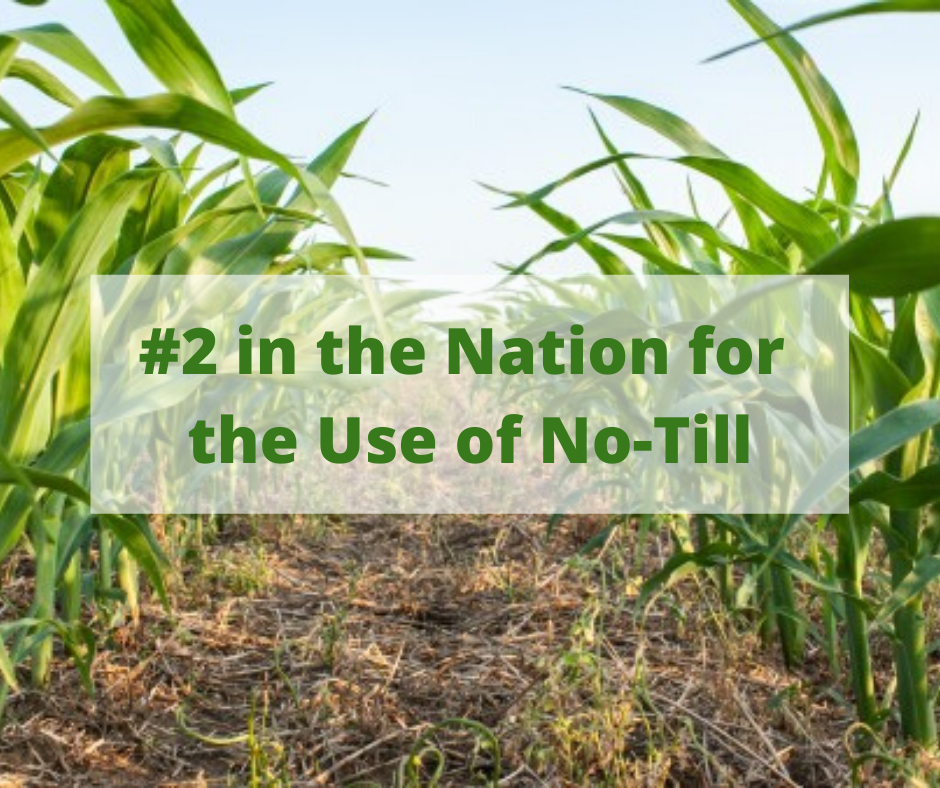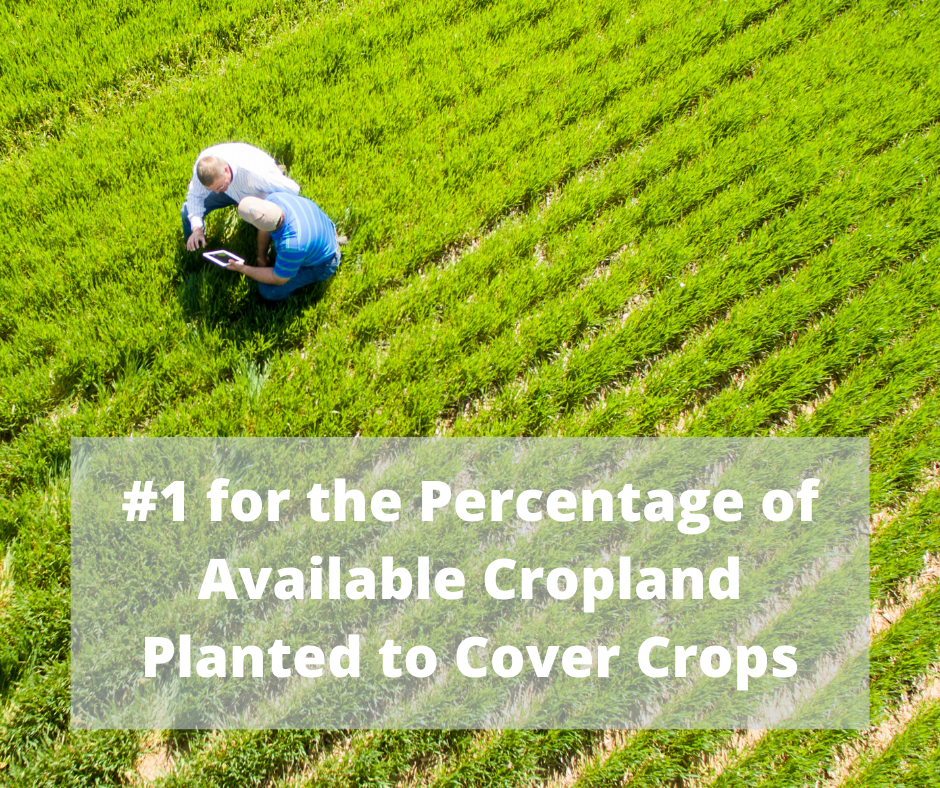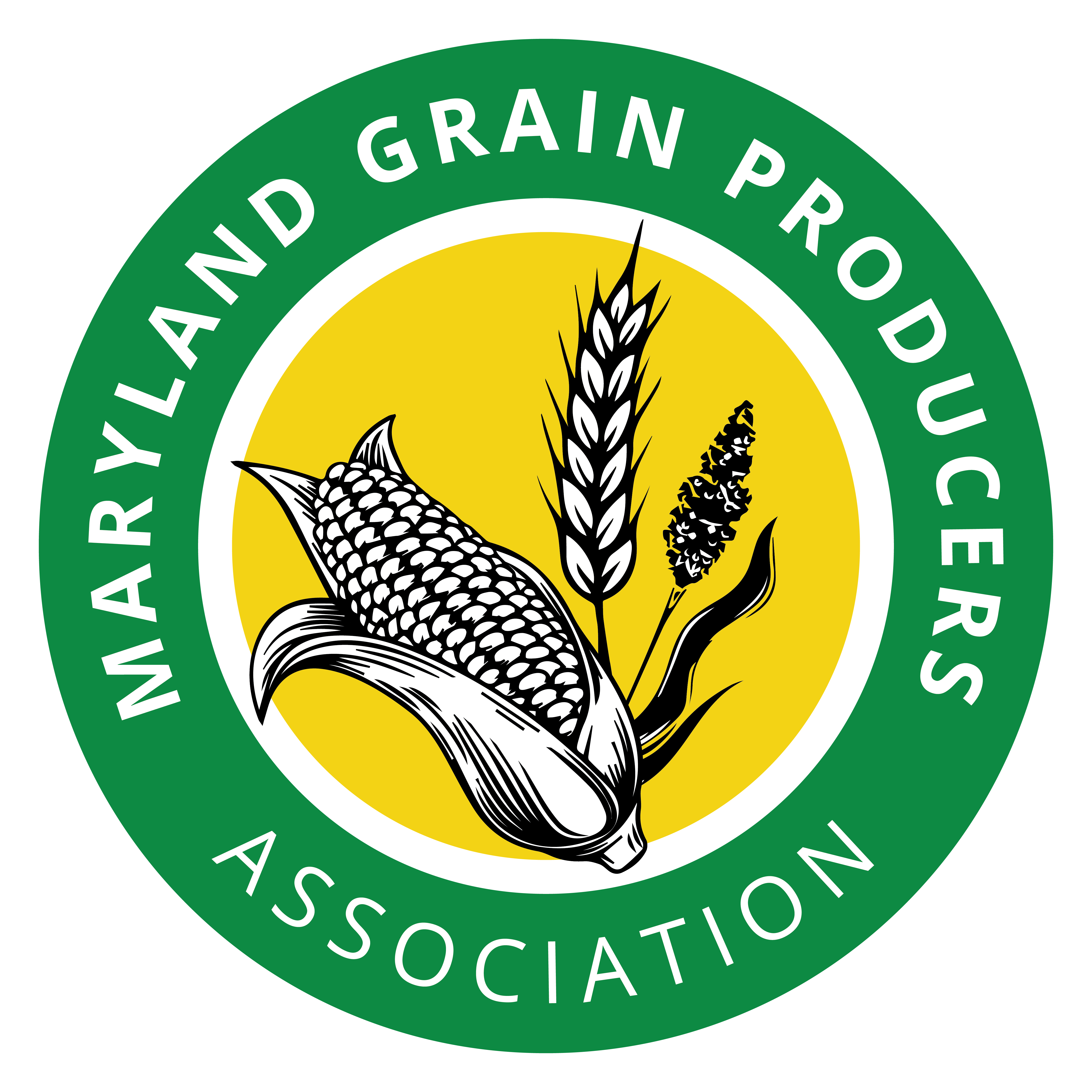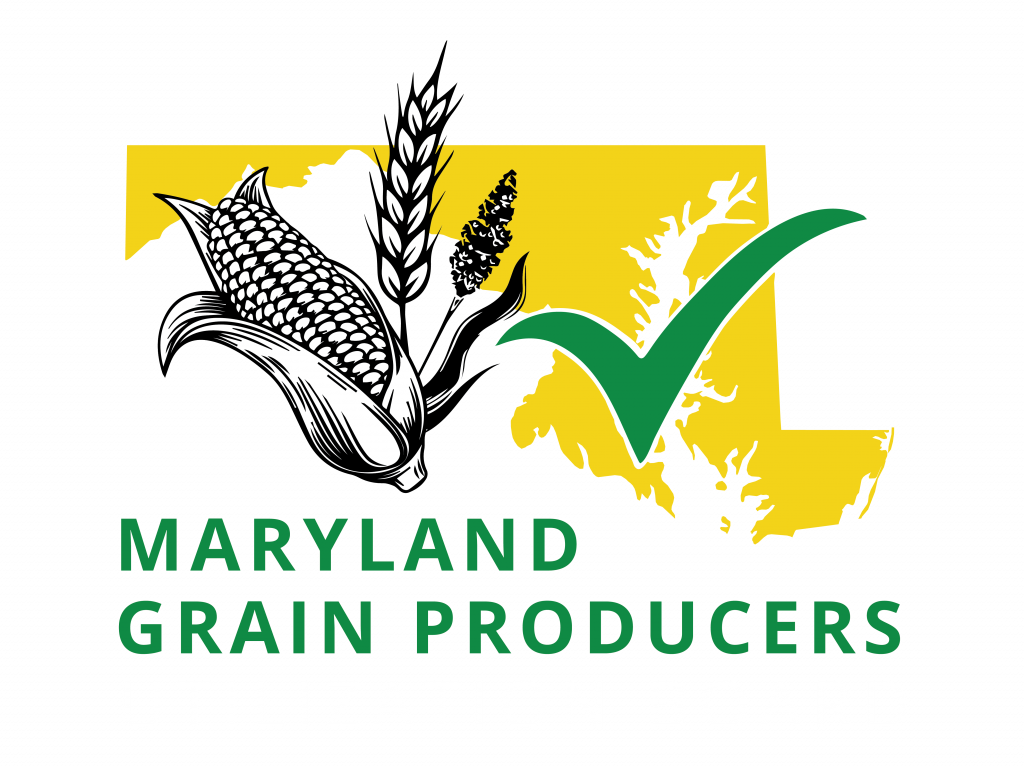Soil Health
Soil scientists have long known that building soil organic matter helps all soils store nutrients, soak up water, resist erosion and increase the number of biodiversity of beneficial organisms that make the soil more productive. Maryland Grain Producers have been practicing soil health on their operations for years!
The United States Department of Agriculture has determined four steps to build healthy soils through the Natural Resources Conservation Service (NRCS).
- Keep the soil covered: include cover crops in your rotation to protect against erosion, improve biodiversity, add organic matter to the soil, and reduce compaction.
- Disturb the soil as little as possible: use no-till or reduced tillage farming practices instead of plowing to reduce erosion, increase residue cover, and build organic matter.
- Rotate crops to increase biodiversity: crop rotation helps return nutrients to the soil, interrupts pest and disease cycles, while increasing fertility and crop yields.
- Keep a living root throughout the year: include a cover crop in your rotation or establish perennial grasses to provide food for organisms that live in the soil.
There are a number of benefits on and off the farm when one’s soil is healthy!
- Improves soil structure and infiltration ability
- Increases plant nutrient uptake
- Sequesters carbon
- Diversifies soil microbes
- Reduces weeds and pests
- Protects against too much or too little rain
In 2017, Governor Hogan signed legislation establishing Maryland’s Healthy Soils Program. The Maryland Department of Agriculture leads this program and has a 33 member committee, including nine Maryland farmers.
Learn more about Soil Health and Maryland’s Program here.
Best Management Practices
Maryland farmers protect the Bay every day… from utilizing best management practices to planting wildlife buffers, farmers take care of the water and soil to ensure healthy resources are available for generations of families to come.
Reflecting the diversity of the Maryland topography, each farm requires its own nutrient management plan mandated by the state to determine what is best for its location, soil type, type of crop grown, and more. There are a variety of Best Management Practices to choose from to create the plan that is most effective for each farm, Further, farmers will create a soil conservation and water quality plan to prevent any significant sources of pollution from leaving the farm.
Other strategies that may be implemented include animal waste management systems, conservation tillage, cover crops, manure transport, precision agriculture, riparian forest and grass buffers, stream protection, and more.
Find Your Local Conservation Office
Maryland Is A National Leader
Grain producers in Maryland are big on using conservation practices that build healthy soils and protect water quality. The most recent Soil Health Census report by the National Soil Institute rated Maryland farmers:



